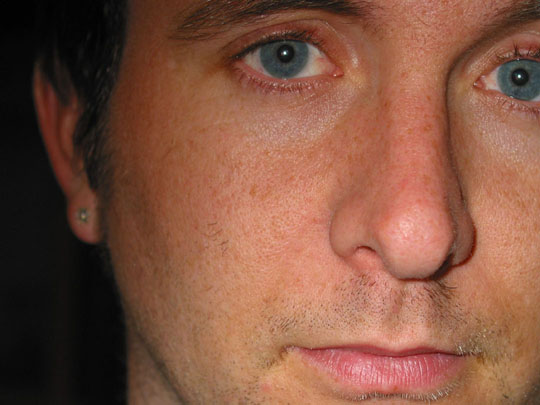

PAGE 2 SCREEN
Way back in October 2002 I interviewed hotshot writer Jonathan Safran Foer, who had just published his debut novel, Everything is Illuminated. I decided that the recent DVD release of the film adaptation was as good a reason as any to dust off this old article, which I originally published in the Portland Tribune.
Just for kicks I'm tagging on my recent review of the film adaptation.
If you're hungry for more Foer, check out his 2005 novel Extremely Loud and Incredibly Close. It's the flawed but highly engaging story of a precocious young boy named Oskar who seeks information about his father, a victim of the 2001 terrorist attacks.
A BOOK WITH A LIFE OF ITS OWN
First novel exploring family’s past is not your basic historical fiction
When he was 19, writer Jonathan Safran Foer traveled to Ukraine in the former Soviet Union. He hoped to find and meet the woman who saved his grandfather from the Nazis in the 1940s, but his efforts were unsuccessful.
Though he was in Ukraine for only three days, his visit sparked a writing project that has resulted in one of this year’s most acclaimed debut novels. Everything Is Illuminated, a fictionalized account of Foer’s trip and his Ukrainian heritage, has been praised by such literary heavyweights as Joyce Carol Oates and Russell Banks. Published last spring by Houghton Mifflin (which outbid 12 other publishing houses for the rights), the book peaked at No. 15 on the New York Times best-seller list.
In an interview, Foer, who is just 25, offers a no-nonsense account of his writing process. “I didn’t know I was going to write a book,” he says. “It started taking on a life of its own.”
The result is a novel filled with folk tales and vivid accounts of historical events such as the mass execution of Jews in Ukraine during World War II.
Foer says he didn’t consult history books while he wrote. “I did no research on Ukraine or village life there,” he says. “It was OK for me to make factual errors if it led to emotional accuracy. I was trying to write from the heart.”
The novel weaves together three narrative threads. Parts are told in the voice of Alexander Perchov, a young Ukrainian who translates for an American named Jonathan Safran Foer. Perchov speaks an ambitious but clunky English, introducing himself in the first chapter by saying, “But first I am burdened to recite my good appearance.”
The character Foer, a college student, has come to Ukraine to find Trachimbrod, the village where his relatives lived. In several chapters, he gives a third-person account of Trachimbrod’s history, focusing on the tempestuous love lives of its inhabitants.
Finally, Perchov writes letters to Foer, critiquing his history of the village. Compared to the irreverent sections narrated by Perchov, the lengthy historical digressions are plodding. And yet for the most part, “Everything Is Illuminated” moves at a brisk clip, and the author deftly balances the story’s comic and tragic elements.
Foer cites Franz Kafka, William Shakespeare and Leo Tolstoy as influences. Saul Bellow, Philip Roth and Italo Calvino are some of his favorite modern writers. A visual arts enthusiast, he’s now working on a novel set in a museum. Keeping to his taciturn ways, he won’t elaborate about the project. “I feel like I’m just getting a grasp on it,” he says.
FILM REVIEW
Everything is Illuminated
Grade: A-
Actor Liev Schreiber (The Manchurian Candidate) wrote and directed this flawed but highly engaging adaptation of Jonathan Safran Foer’s celebrated 2002 novel. Elijah Wood, formerly known as Frodo, plays a bookish American Jew who teams up with a blind tour guide and a rambunctious translator to search Ukraine for the woman who saved his grandfather from the Nazis. To avoid getting tangled up in Foer’s folktales and historical digressions, Schreiber leaves out some of the novel’s most colorful scenes. But the footage onscreen is handled so well that you can’t help but forgive the dodgy screenwriting.


0 Comments:
Post a Comment
<< Home